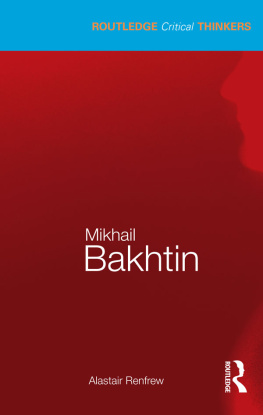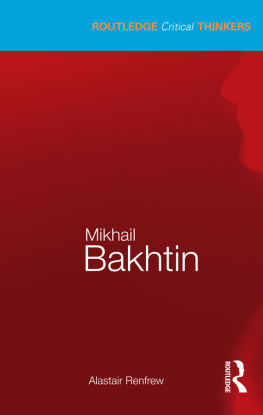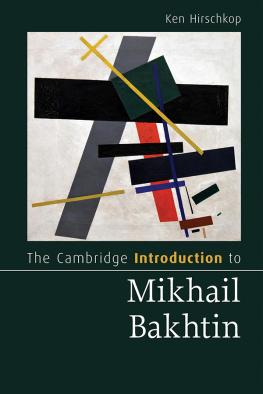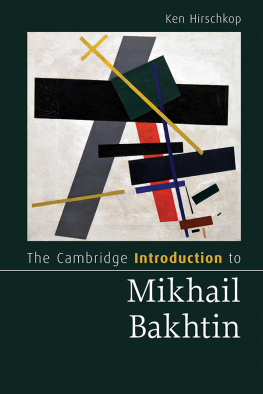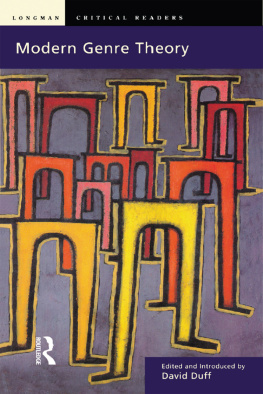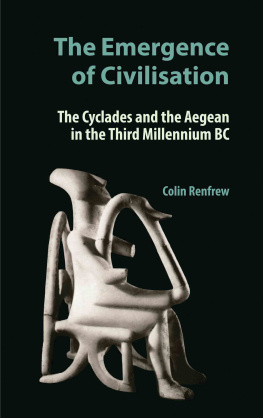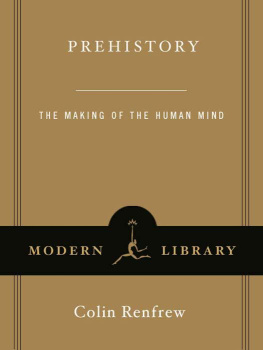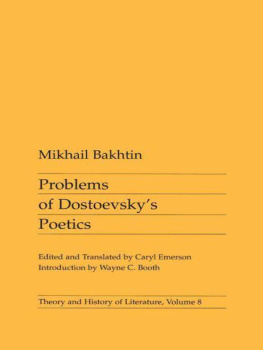Renfrew - Mikhail Bakhtin
Here you can read online Renfrew - Mikhail Bakhtin full text of the book (entire story) in english for free. Download pdf and epub, get meaning, cover and reviews about this ebook. year: 2015, publisher: Routledge, genre: Religion. Description of the work, (preface) as well as reviews are available. Best literature library LitArk.com created for fans of good reading and offers a wide selection of genres:
Romance novel
Science fiction
Adventure
Detective
Science
History
Home and family
Prose
Art
Politics
Computer
Non-fiction
Religion
Business
Children
Humor
Choose a favorite category and find really read worthwhile books. Enjoy immersion in the world of imagination, feel the emotions of the characters or learn something new for yourself, make an fascinating discovery.
Mikhail Bakhtin: summary, description and annotation
We offer to read an annotation, description, summary or preface (depends on what the author of the book "Mikhail Bakhtin" wrote himself). If you haven't found the necessary information about the book — write in the comments, we will try to find it.
Mikhail Bakhtin — read online for free the complete book (whole text) full work
Below is the text of the book, divided by pages. System saving the place of the last page read, allows you to conveniently read the book "Mikhail Bakhtin" online for free, without having to search again every time where you left off. Put a bookmark, and you can go to the page where you finished reading at any time.
Font size:
Interval:
Bookmark:
MIKHAIL BAKHTIN
Mikhail Bakhtin was one of the twentieth centurys most influential literary theorists. This accessible introduction to his thought begins with the questions Why Bakhtin? and Who was Bakhtin?, before dealing in detail with his ideas on authorship and subjecthood, language, dialogism, heteroglossia and the novel, the chronotope, and the carnivalesque. True to their dialogic spirit, these ideas are presented not as a fixed body of knowledge, but rather as living and evolving entities, as ways of approaching not only the most persistent questions of language and literature, but also issues that are relevant across the full range of Humanities disciplines. Bakhtin emerges in the process as a key thinker for the Humanities in the twenty-first century.
Alastair Renfrew is Reader in English and Comparative Literature at Durham University, UK.
ROUTLEDGE CRITICAL THINKERS
Series Editor: Robert Eaglestone, Royal Holloway, University of London
Routledge Critical Thinkers is a series of accessible introductions to key figures in contemporary critical thought.
With a unique focus on historical and intellectual contexts, the volumes in this series examine important theorists:
- significance
- motivation
- key ideas and sources
- impact on other thinkers
Concluding with extensively annotated guides to further reading, Routledge Critical Thinkers are the students passport to todays most exciting critical thought.
Also available in the series:
Theodor Adorno by Ross Wilson
Giorgio Agamben by Alex Murray
Louis Althusser by Luke Ferretter
Hannah Arendt by Simon Swift
Roland Barthes by Graham Allen
Jean Baudrillard Second edition by Richard J. Lane
Simone de Beauvoir by Ursula Tidd
Homi K. Bhabha by David Huddart
Maurice Blanchot by Ullrich Haase and William Large
Judith Butler by Sara Salih
Gilles Deleuze by Claire Colebrook
Jacques Derrida by Nicholas Royle
Frantz Fanon by Pramod K. Nayar
Michel Foucault by Sara Mills
Sigmund Freud Second edition by Pamela Thurschwell
Paul Gilroy by Paul Williams
Antonio Gramsci by Steven Jones
Stephen Greenblatt by Mark Robson
Stuart Hall by James Procter
Martin Heidegger Second edition by Timothy Clark
Fredric Jameson by Adam Roberts
Julia Kristeva by Nolle McAfee
Jean-Franois Lyotard by Simon Malpas
Jacques Lacan by Sean Homer
F.R. Leavis by Richard Storer
Emmanuel Levinas by Sen Hand
Paul de Man by Martin McQuillan
Friedrich Nietzsche by Lee Spinks
Paul Ricoeur by Karl Simms
Edward Said Second edition by Bill Ashcroft and Pal Ahluwalia
Jean-Paul Sartre by Christine Daigle
Eve Kosofsky Sedgwick by Jason Edwards
Gayatri Chakravorty Spivak by Stephen Morton
Paul Virilio by Ian James
Slavoj iek by Tony Myers
American Theorists of the Novel: Henry James, Lionel Trilling and Wayne C. Booth by Peter Rawlings
Theorists of the Modernist Novel: James Joyce, Dorothy Richardson and Virginia Woolf by Deborah Parsons
Theorists of Modernist Poetry: T.S. Eliot, T.E. Hulme and Ezra Pound by Rebecca Beasley
Feminist Film Theorists: Laura Mulvey, Kaja Silverman, Teresa de Lauretis and Barbara Creed by Shohini Chaudhuri
Cyberculture Theorists: Manuel Castells and Donna Haraway by David Bell
MIKHAIL BAKHTIN
Alastair Renfrew

First published 2015
by Routledge
2 Park Square, Milton Park, Abingdon, Oxon OX14 4RN
and by Routledge
711 Third Avenue, New York, NY 10017
Routledge is an imprint of the Taylor & Francis Group, an informa business
2015 Alastair Renfrew
The right of Alastair Renfrew to be identified as author of this work has been asserted by him in accordance with sections 77 and 78 of the Copyright, Designs and Patents Act 1988.
All rights reserved. No part of this book may be reprinted or reproduced or utilized in any form or by any electronic, mechanical, or other means, now known or hereafter invented, including photocopying and recording, or in any information storage or retrieval system, without permission in writing from the publishers.
Trademark notice: Product or corporate names may be trademarks or registered trademarks, and are used only for identification and explanation without intent to infringe.
British Library Cataloguing-in-Publication Data
A catalogue record for this book is available from the British Library
Library of Congress Cataloging in Publication Data
Renfrew, Alistair.
Mikhail Bakhtin / Alistair Renfrew.
pages cm. -- (Routledge critical thinkers)
Includes bibliographical references and index.
1. Bakhtin, M. M. (Mikhail Mikhailovich), 1895-1975--Criticism and interpretation. 2. Criticism--History--20th century. 3. Literature--History and criticism--Theory, etc.
I. Title.
PN81.R373 2014
801.95--dc23
2014026140
ISBN: 978-0-415-31968-3 (hbk)
ISBN: 978-0-415-31969-0 (pbk)
ISBN: 978-0-203-62550-7 (ebk)
The books in this series offer introductions to major critical thinkers who have influenced literary studies and the humanities. The Routledge Critical Thinkers series provides the books you can turn to first when a new name or concept appears in your studies.
Each book will equip you to approach a key thinkers original texts by explaining his or her key ideas, putting them into context and, perhaps most importantly, showing you why this thinker is considered to be significant. The emphasis is on concise, clearly written guides which do not presuppose a specialist knowledge. Although its focus is on particular figures, the series stresses that critical thinkers never existed in a vacuum, but instead emerged from broader intellectual, cultural and social contexts. Finally, these books will act as a bridge between you and the thinkers original texts: not replacing them, but rather complementing what they wrote. In some cases, volumes consider small clusters of thinkers working in the same area, developing similar ideas or influencing each other.
These books are necessary for a number of reasons. In his 1997 autobiography, Not Entitled, the literary critic Frank Kermode wrote of a time in the 1960s:
On beautiful summer lawns, young people lay together all night, recovering from their daytime exertions and listening to a troupe of Balinese musicians. Under their blankets or their sleeping bags, they would chat drowsily about the gurus of the time What they repeated was largely hearsay; hence my lunchtime suggestion, quite impromptu, for a series of short, very cheap books offering authoritative but intelligible introductions to such figures.
There is still a need for authoritative and intelligible introductions. But this series reflects a different world from the 1960s. New thinkers have emerged, and the reputations of others have risen and fallen as new research has developed. New methodologies and challenging ideas have spread through the arts and humanities. The study of literature is no longer if it ever was simply the study and evaluation of poems, novels and plays. It is also the study of ideas, issues and difficulties which arise in any literary text and in its interpretation. Other arts and humanities subjects have changed in analogous ways.
With these changes, new problems have emerged. The ideas and issues behind these radical changes in the humanities are often presented without reference to wider contexts or as theories which you can simply add on to the texts you read. Certainly, theres nothing wrong with picking out selected ideas or using what comes to hand indeed, some thinkers have argued that this is, in fact, all we can do. However, it is sometimes forgotten that each new idea comes from the pattern and development of somebodys thought and that it is important to study the range and context of their ideas. Against theories floating in space, the
Next pageFont size:
Interval:
Bookmark:
Similar books «Mikhail Bakhtin»
Look at similar books to Mikhail Bakhtin. We have selected literature similar in name and meaning in the hope of providing readers with more options to find new, interesting, not yet read works.
Discussion, reviews of the book Mikhail Bakhtin and just readers' own opinions. Leave your comments, write what you think about the work, its meaning or the main characters. Specify what exactly you liked and what you didn't like, and why you think so.

